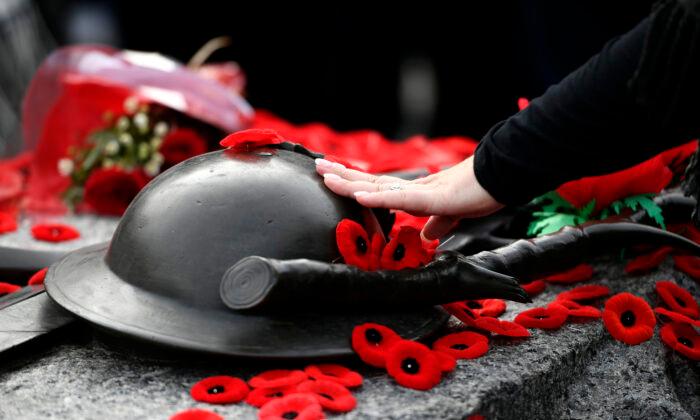Remembrance Day: A Collision of Tradition, Politics, and Controversy
In a week meant for solemn reflection and honoring Canada’s military sacrifices, Remembrance Day became a battleground for cultural and political debates, sparking widespread controversy. At the heart of the issue were decisions by event organizers that some argued strayed from tradition, igniting backlash from Conservative Leader Pierre Poilievre and others.
Poilievre’s Criticism of “Woke” Activism
Conservative Leader Pierre Poilievre voiced strong objections to what he described as “woke” activism infiltrating Remembrance Day ceremonies. He specifically criticized a Toronto event that included a land acknowledgment referencing the transatlantic slave trade and an Ottawa school’s choice to play an Arabic song, perceived by some as politically charged.
“What an absolute disgrace that so many woke activists & authorities used Remembrance Day to push their divisive and radical causes,” Poilievre stated on social media. He accused organizers of disrespecting the sacrifices of Canada’s military by diluting the day’s traditional focus. Poilievre’s comments have further amplified his broader stance against what he calls a “woke” culture, which he promises to replace with a “warrior” ethos if elected.
Veterans Advocate Backs Traditional Observances
Sean Bruyea, a Gulf War veteran and prominent advocate for military members, expressed similar concerns. Describing recent changes as “deeply offensive” to many veterans, Bruyea criticized deviations from established Remembrance Day traditions.
“There’s a formula that has long assuaged the grief of veterans and their families. When it gets distorted with unrelated causes, you lose the focus on sacrifice,” he told CBC News. He also condemned a Halifax school’s brief decision to discourage military uniforms at its ceremony to create a “welcoming environment,” a move later reversed after public outcry.
Calls for Inclusivity and Evolution
Not everyone views these controversies negatively. Historian Jonathan Vance argued that debates surrounding Remembrance Day highlight its continued relevance. “The way to keep an observance alive is to have it debated and discussed,” Vance said. He noted that over the years, ceremonies have evolved to reflect Canada’s growing diversity, incorporating Indigenous and multicultural elements without diminishing their core significance.
Anecdotal evidence suggests the day remains deeply important to Canadians. This year’s attendance at Ottawa’s National War Memorial was reportedly the largest in recent memory, despite inclement weather. A poll by Historica Canada revealed that 80% of respondents consider it important to participate in Remembrance Day ceremonies.
Balancing Tradition and Modern Values
The tension between maintaining tradition and embracing inclusivity reflects broader cultural shifts in Canada. While critics like Poilievre argue for preserving the day’s traditional focus on military sacrifices, proponents of inclusivity see these changes as necessary for the ceremony’s long-term relevance in a multicultural society.
Ultimately, the passionate debates and widespread participation signal one clear truth: Remembrance Day remains a deeply cherished and significant part of Canada’s national identity. Whether through criticism or celebration, the day continues to inspire reflection on the sacrifices of those who served and the values they sought to protect.
Source : The Canadian Press


